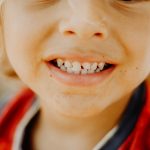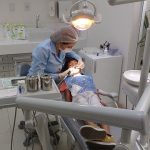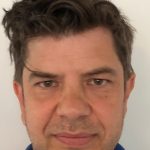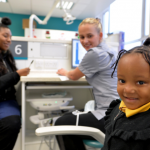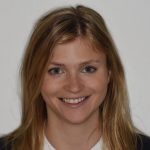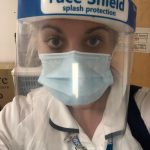NHS doctor, TV presenter, author and celebrity contestant on Strictly Come Dancing, Dr Ranj, is the star of three new mini-videos unveiled today. Actor Gemma Oaten who rose to fame in TV soap Emmerdale supports Dr Ranj as the voice of sidekick Supertooth.
The videos, which can be found here, combine live action with computer animation. The aim is to give parents, carers and children the tips they need to keep teeth healthy. During the Covid-19 lockdown, dentists are only providing emergency treatment, which makes preventive advice on avoiding dental decay more important than ever.
Dr Ranj and Supertooth guide children in different age categories and demonstrate, in just a few minutes, how to brush teeth. The key tips to promote prevention of dental decay are:
- Brush for two minutes at least twice a day, including last thing before bed
- Use a fluoride toothpaste
- Spit, don’t rinse after brushing your teeth
Statistics released by NHS Digital show that nearly 60,000 children go into hospital annually to have teeth extracted under general anaesthetic. The cost for the treatment of this preventable disease is roughly £50 million annually.
The videos were instigated for the British Society of Paediatric Dentistry (BSPD) by real-life Toothfairy Claire Stevens, a Consultant in Paediatric Dentistry and a spokesperson for BSPD. She explained: “Every year, when statistics for dental extractions in children are published, I am interviewed by the media who are horrified that so many children are ending up in hospital having teeth taken out and they want to know why. As a children’s dentist, I know that the main culprit is frequent consumption of sugary foods and drinks, especially between meals. We also know that it can be a challenge to teach children to brush their teeth when they are young and then encourage them to keep brushing as they get older. We had to find a way to reach parents with helpful advice in a fun and non-judgemental way.”
Coincidentally, she was contacted by Ben Underwood, a dentist and the creator of the free Brush DJ app, who was looking for videos that would give parents and carers accurate information in the most accessible format – short, fun and online.
Claire went on a mission to speak to Dr Ranj who had co-created and presented the CBeebies show Get Well Soon. Her daughter loved the programme and would quote Dr Ranj after watching the show.
“As soon as I spoke to him, I knew he was the right person to help make some watchable videos for children. He was immediately on board with the messages and he insisted on giving of his time freely.”
Now in collaboration, Ben and Claire carried out research among high-risk patients supported by BSPD Exec member, Hannah Walsh. They learned that the parents of the target group favoured videos which are short, fun, have star quality and include animation. All aspects of the videos, the length, format, design and distribution, have been tailored in response to the feedback they received. The results are now being written up by Dr Walsh as an academic paper.
The final crucial pieces in the jigsaw, said Claire, were production and sponsorship. They were fortunate to have Joff Powell and his team at Pedwar Productions make the videos and he invited actor Gemma Oaten to be the voice of the animated character Supertooth.
She said: “Health care solutions provider Henry Schein and dental suppliers Dentisan generously came on board as sponsors and I have been supported by BSPD Executive throughout. Now we all hope to see positive results – fewer children in our clinics with decay.”
Dr Ranj commented: “Every child deserves to grow up happy and healthy, and that absolutely includes having healthy teeth. I’ve seen so many instances where dental health is forgotten, or people just don’t realise its importance, until it’s too late. The statistics around how many children have to have teeth removed because of decay are shocking. All it takes to prevent this situation is some simple advice and practice, which is why I’m so keen to be part of this campaign.”
Patrick Allen, Managing Director of Henry Schein UK and Ireland, commented: “We at Henry Schein are very happy to partner with the BSPD and Brush DJ to help promote the importance of children’s oral health to their overall wellbeing. The videos with Dr Ranj are an excellent and innovative way to help engage with families so they understand the importance of their children brushing their teeth, which can support reducing the risk of getting tooth decay.”
Bob Newsome, Managing Director at infection control manufacturing specialists Dentisan said, “We are delighted to have been able to help spread the word about the importance of daily tooth brushing for children. These videos are a perfect blend of a serious message given in a fun and age-appropriate way.”
View the videos on YouTube here.



